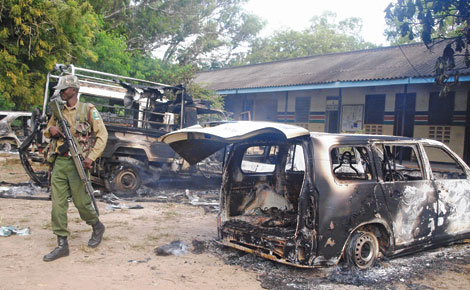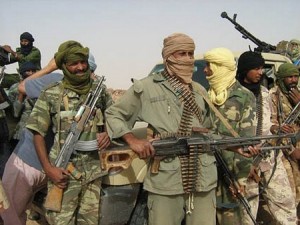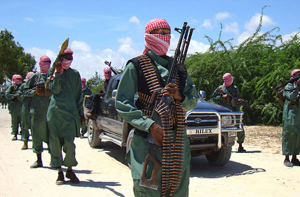Security awareness training: a building block for business continuity management against extremist threats
Who ever thought that a day at the office would have to be a day spent thinking about the possibility of terrorism, in addition to the normal demands of business?
Probably not most employees of Multinational Corporations doing business in far-flung corners of the globe. While MNCs have always maintained operations in volatile countries and regions, it’s simply an inescapable reality today that the potential for violent extremism has never been greater – and few targets are as appealing to a terrorist as an MNC. That means that employees can never let their guard down, and neither can the companies responsible for both employee safety and security, and business continuity management.
The situation in Kenya is one case in point
While the country’s Jubilee Alliance of thirteen smaller political factions represents a sweeping effort to unite the often fractious nation and consolidate President Kenyatta’s power, it shows little chance of ending violent political and tribal opposition anytime soon. For the many MNCs doing business in Kenya, typically headquartered in Nairobi or Mombasa but with operations throughout the country, safety and business continuity threats ranging from militancy to crime, civil unrest, and other disruptions are an ongoing concern. Both al-Shabaab, the notorious perpetrators of the 2013 mass killings at Kenya’s upscale Westgate Mall, and IS remain active in recruiting and training Kenyan youths for extremist violence, and the threat of future attacks persists.
Knowing that is a first step in guarding against potentially catastrophic disruptions, of course. But MNCs in Kenya, or any hotspot on the globe, also need to prepare in advance for any potential business continuity risks. That means equipping employees with the training they need both to recognize a threat before it evolves into a crisis and to respond appropriately when an emergency actually does unfold, according to Mr. Ital Dar, Chief Consulting Officer at MAX, where employee security training is seen as a cornerstone of crisis prevention and response for MNCs. “Once a large-scale incident or an emergency scenario hits an organization, the main task is to go back to normal as soon as possible,” he said, “and security managers must ask themselves: what are the required measures we need to take in order to so?”
The caveat is, they need to ask the question and find the answers not only in the thick of crisis, but also well before.
Employee security awareness training is key to minimizing risks
You can’t really separate the issue of employee safety from business continuity, or vice versa. The one depends on the other, and the only way to ensure that they are both adequately safeguarded is to provide comprehensive employee security awareness training. Typically for MNCs, that entails enlisting the expertise of knowledgeable consultants, who then tailor employee training sessions to the specific site and circumstances of each office in order to localize the training around specific risks and the most likely business continuity scenarios.
The training is site-specific and classroom-based, and is augmented by not only movies, PowerPoint presentations, discussions and lectures, but also by classroom drills and simulations to provide experiential learning as well as academic context.
Quality employee security awareness training covers a lot of ground
Experts such as MAX Security’s Mr. Ital Dar emphasize that such realistic simulations are critically important in preparing employees to know how and when to respond to a perceived threatening situation. By definition, and by their very nature, terror attacks come quickly and unexpectedly, but it is still possible – in fact necessary – to prepare employees with the tools and experience to assess even the most fluid situation as it happens and make level-headed decisions based on their prior training and planning.
While the particulars of a training regimen should always be tailored to each company and location, a broad outline of topics that need to be addressed can apply to MNCs operating in any location that a heightened terror threat is present. These include delving into relevant threat scenarios, assessing the location of an attack and reacting accordingly to minimize loss, and using the facility itself as a defensive resource, as when a shooting is occurring in one part of the building.
Additionally, and again at an experiential level, training should focus heavily on how to plan for an attack or other threat before it occurs. In such a training module, employees work toward devising a response plan that incorporates clearly defined crisis management and emergency response goals and roles, and then they effectively deconstruct and reconstruct the plan in a tabletop exercise in which they identify and rectify any gaps and missteps in the original plan.
Whatever other topics are covered in the training sessions of any particular MNC, the issue of business continuity management remains central, of course. For that reason, no security awareness training is complete if it doesn’t look to post-event issues and actions, as well as pre-event planning and training on how to respond in the moment. As soon as an event subsides, the aim of any business has to be to return to normal operations as soon as possible. Advance training, planning, and role-playing is an essential tool for meeting those challenges as well, including hands-on exercises that help to identify possible snags and anticipate optimal solutions for if and when they arise.
Business continuity risk assessment begins with training
It’s an unfortunate fact of life that no business – certainly no MNC operating in a volatile land – can take security for granted. Not in the 21st century. And not in a country like Kenya, where deep-seated political rivalries, tribal and ethnic divisions, persistent war and terrorism in neighboring states, and the unwelcome presence of some of the most destructive terror groups in the world today, make threats to business operations a very real and present danger.
Against that backdrop, MNCs are likely to conclude that high-quality employee security awareness training is one of the best tools they have at hand to reduce the always-present threat to business continuity.
Read more posts like this in our Security Blog.





